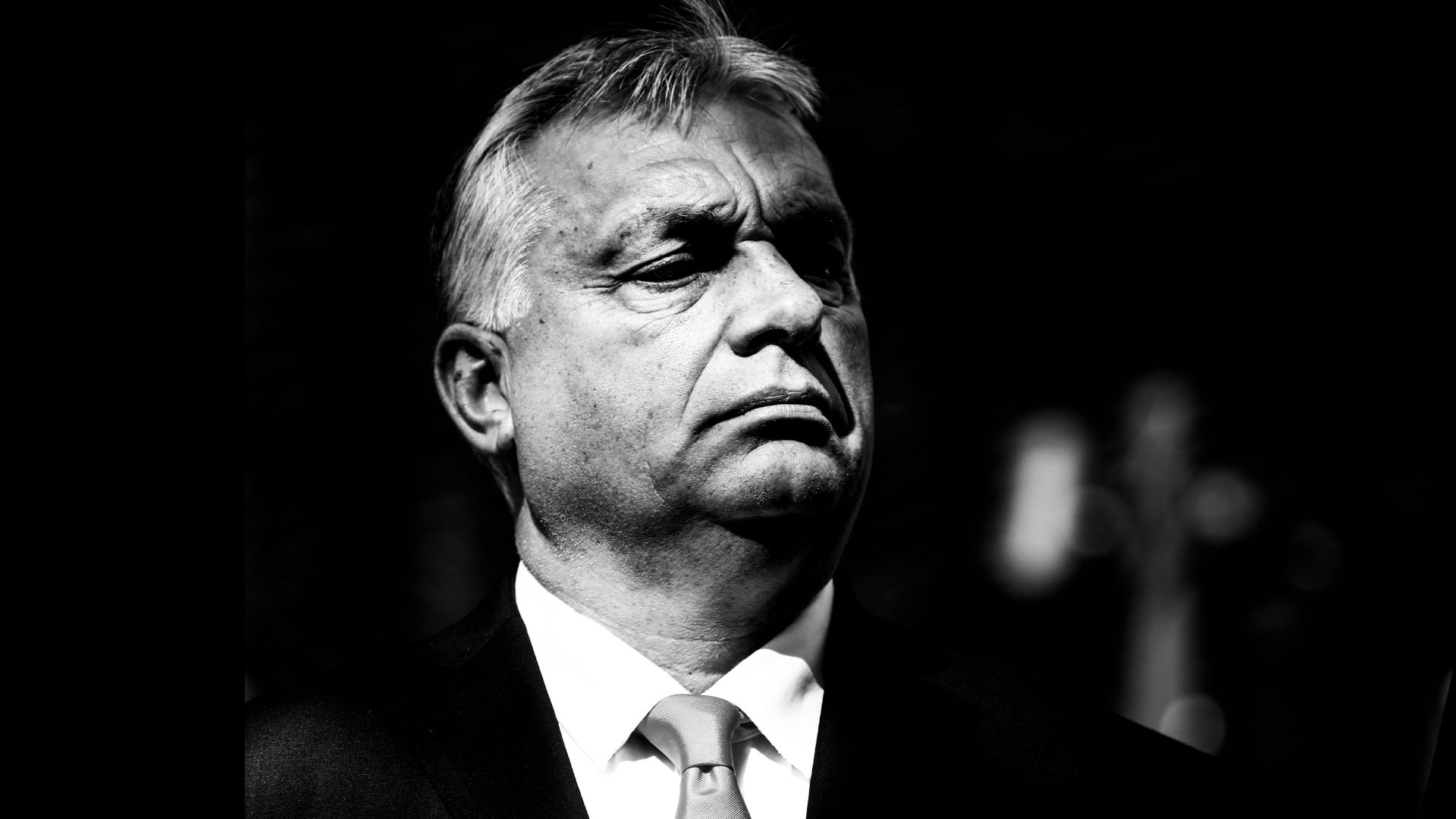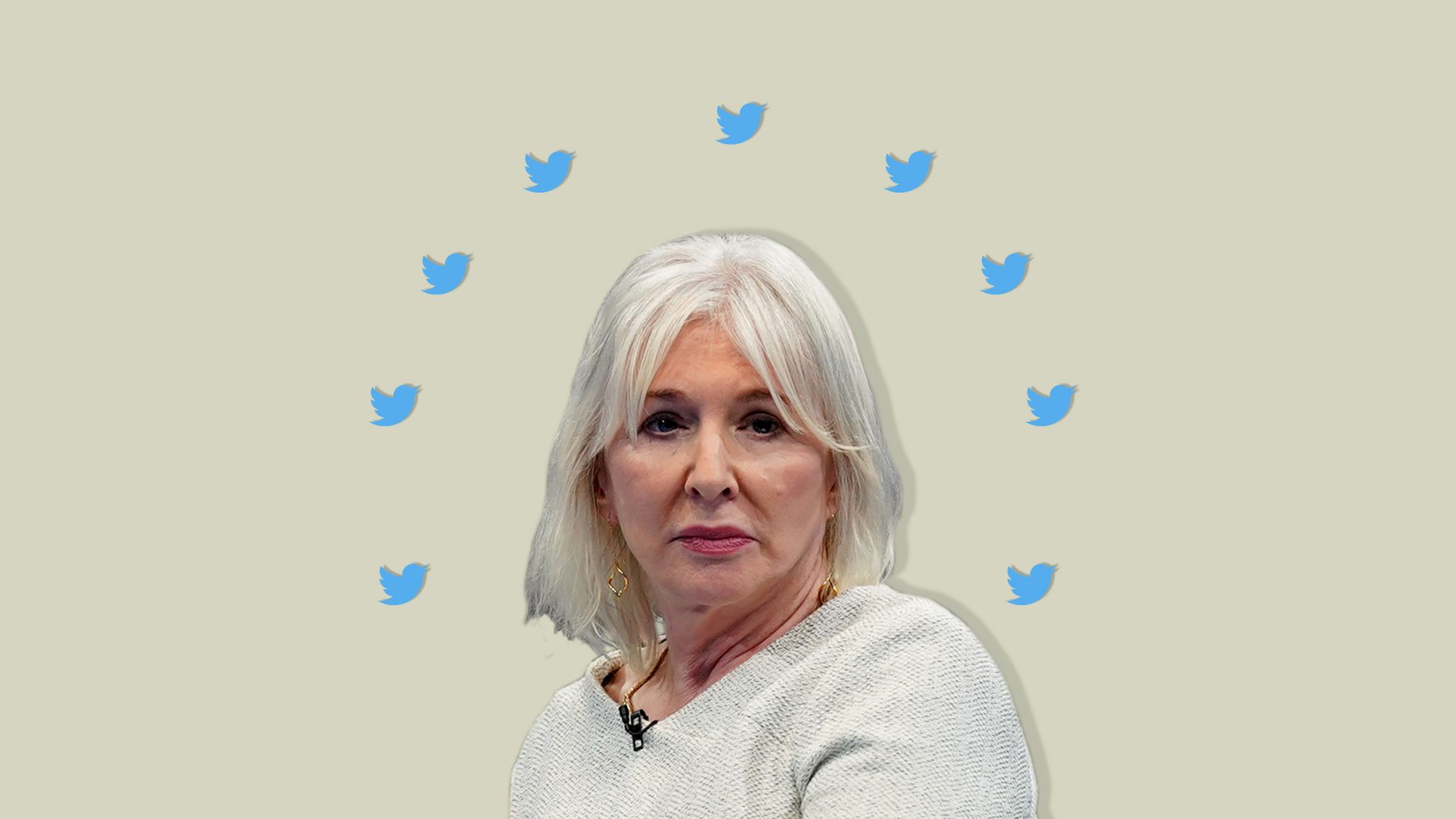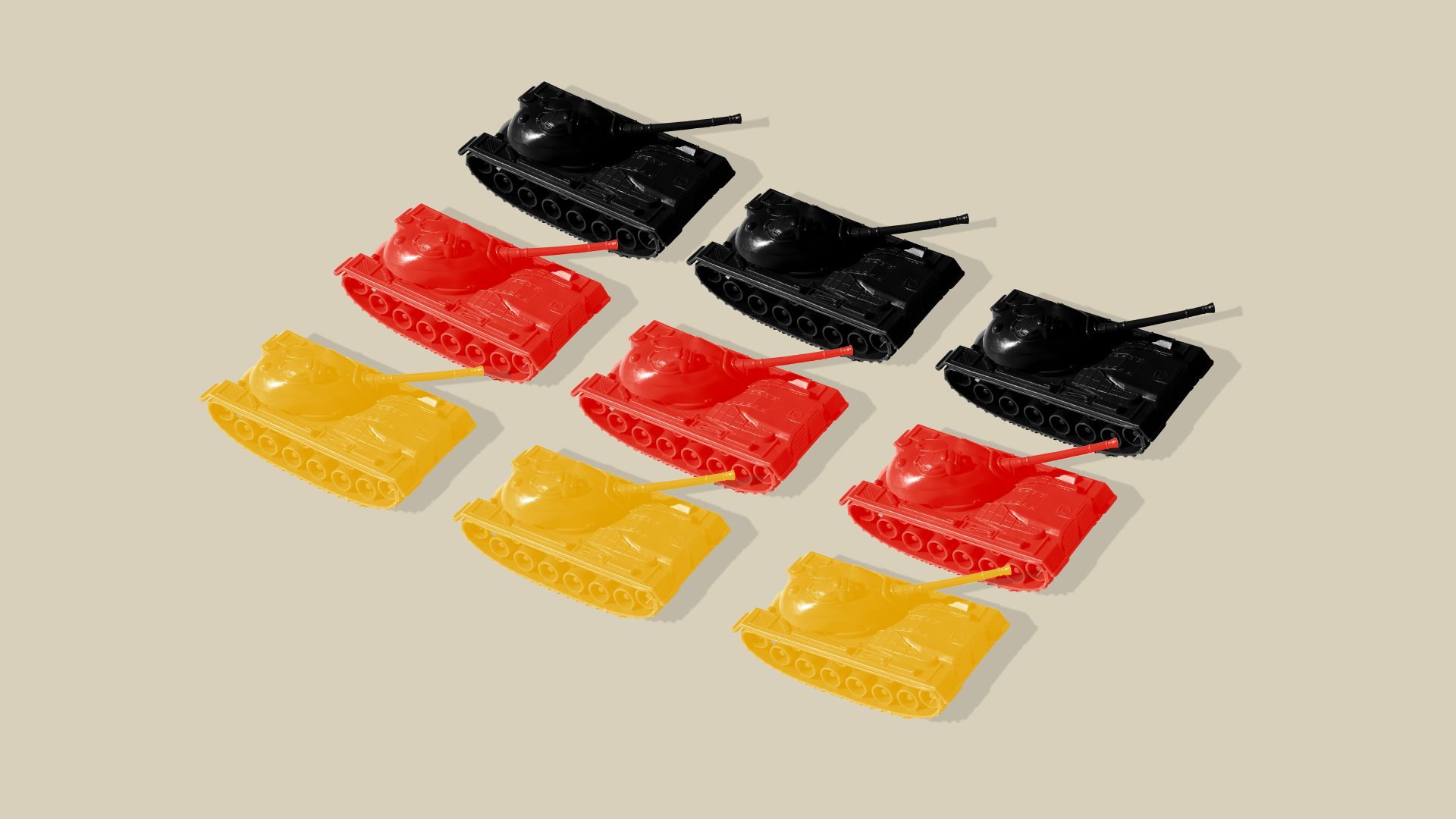Until dawn on February 24, everything looked rosy for the Hungarian prime minister, Viktor Orbán. At home, he was riding high in opinion polls ahead of an election on April 3.
In central Europe, his “defensive alliance” with the governing Law and Justice party in Poland, and in particular its leader, Jarosław Kaczyński, was protecting both countries from the wrath of Brussels. Hungary and Poland stand accused of riding roughshod over basic democratic norms, like an independent judiciary and human rights for asylum seekers – what Orbán calls “the imperialist tantrums of Brussels”.
Looking north, he was the unchallenged leader of the Visegrad 4, the regional block of 68 million people in Hungary, Poland, the Czech Republic and Slovakia, which acts as a lobby group within the EU.
Looking east, his special relationship with the Russian president, Vladimir Putin, had secured him promising deals to guarantee the flow of the 64% of its oil and 85% of its gas Hungary gets from Russia. Russian finance and contractors were also in place to build a massive extension to an existing nuclear power station at Paks on the Danube. Further east, Orbán’s special relationship with Beijing had won Chinese funding for a fast rail link to Belgrade, and a plan to build a new campus for the Fudan University in Budapest.
Looking west, Orbán was working hard to forge – and lead – a new right-wing group, standing for all those who believe the nation, the family and the church are under attack from a decadent, permissive West.
Looking south, Orbán’s support for the Bosnian Serb leader Milorad Dodik’s attempts to break up Bosnia were pleasing both to his chief Balkan ally, Serbian president Aleksandar Vučić, and president Putin alike.
Then on February 24, Russia invaded Ukraine, and the whole house of cards collapsed. His friendship with Putin, instead of glueing it all together, became the explosive that was blowing it all apart. His hostility to Ukrainian president Volodymyr Zelensky left him diplomatically high and dry as the rest of the world rushed to support Ukraine in its hour of need.
Orbán ran his re-election campaign with the slogan “peace not war”, arguing that by refusing to allow the supply of weapons across Hungarian territory he could keep his country out of a war which his neighbours could be sucked into by helping Ukraine with military hardware.
That message went down as well at home as it did badly abroad. Orbán’s Fidesz party won the April 3 elections with a huge 54% to 35% majority. But the celebrations were short-lived. He was now poised alone with untrammelled power and responsibility at home, on the brink of an economic crisis that was exacerbated by his overspending to win the election.
“This is the beginning of the renaissance of the nation-state,” Orbán told reporters in Budapest on April 6.
“What about the Ukrainian nation-state?” I asked him. “Do you also believe in the renaissance of a sovereign Ukraine? Or do you share President Putin’s view that there is no such country?”
“There is such a country,” he replied, wary of choosing between the Russian and Ukrainian position, between Putin and Zelensky.
“Ukraine exists. It is a neighbour of Hungary. We know them… Ukrainians are good soldiers.”
At our previous encounter, on the Hungary-Ukraine border in early March, one week into the war, it was a similar story. “What is your message this morning to president Zelensky and to president Putin?” I asked Orbán.
“I don’t have a message to anybody. I have a message only to those refugees who are here,” Orbán replied.
“Hungary is a good friend of Ukraine and Ukrainian people, if they need any help here, they can count on us. I don’t think the leaders need any message and advice on my side. They are big guys and they know better than me what should be done.”
Orbán’s insistence on sitting on the fence – albeit while helping Ukrainian refugees – has earned his government the fury of Zelensky.
“Everyone knows very well who in the European Union opposes humanity and common sense, and who does nothing at all to help establish peace in Ukraine. This must stop, and Europe must stop listening to the excuses of Budapest,” Zelensky said on March 30.
Hostility between the Ukrainian and Hungarian governments is threatening the survival of what remains of the once 150,000-strong Hungarian minority in the Transcarpathian region, in the far west of Ukraine. Local estimates suggest only 50,000 Hungarians remain.
Worse still, in diplomatic terms, the war in Ukraine has split Hungary away from its allies – Poland, Slovakia and the Czech Republic in the Visegrad 4.
“Visegrad is clearly among the casualties in this war,” said Jacques Rupnik, research professor at the Centre for International Studies and Research (CERI) at Sciences Po in Paris.
A landmark date was March 15. While the leaders of Poland, the Czech Republic and Slovenia travelled to the Ukrainian capital as a gesture of solidarity, Orbán was addressing his supporters in Budapest on the anniversary of the Hungarian revolution and war of independence against Habsburg Austria in 1848. “This is not our war,” he told them, to rapturous applause.
In the sea of Hungarian tricolours, the Polish red and white were strangely absent. For many years, the right wing Polish newspaper Gazeta Polska had organised trainloads of Poles to join Fidesz supporters on March 15. This year there were no trains.
“In the face of Russian aggression in Ukraine… in the face of the bombing of housing estates… I find (the Hungarian) attitude difficult to understand,” said the Polish president, Andrzej Duda.
In September 2016, at an economic summit at Krynica in southern Poland, Orbán and Kaczyński pledged a “cultural counter-revolution” to reform Europe into a Europe of sovereign nations, in their own image. The defeat of Marine Le Pen in her presidential election run-off in France, and of Janez Janša in Slovenia on the same day, are major blows to that plan.
“There’s a saying in Hungary that if you trust someone, you can steal horses together,” Orbán said in Krynica. “There are a few stables, and one particularly large one called the EU, where we can steal horses with Hungarians,” Kaczyński replied. For the time being at least, Orbán will have to steal animals alone.
Poland backs Ukraine to the hilt, having absorbed around 2.9 million refugees, supplying weapons and allowing the delivery over its border of weapons from other countries. Slovakia has supplied an S-300 air defence missile system from its own arsenal. The Czechs are sending tanks. In its own defence, the Hungarian government points out that it has also taken in nearly half a million refugees and sent large quantities of humanitarian aid to Transcarpathian Ukraine. According to one source in Mukachevo, around half of that aid remains in Ukraine’s westernmost province, to support hundreds of thousands of refugees from the rest of the country, while the other half is sent on to the east.
The Hungarian government’s friendship with other Visegrad countries is also in tatters. The Czech defence minister has accused Orbán of caring more for Russian oil than Ukrainian blood, while the speaker of the Slovak parliament accused him of wanting to redraw borders in the region, with Russian help.
“They talk about Great Hungary, buy property in our country, issue passports! This is not a joke!” said Boris Kollár on April 11. “The undermining of the international system by the Russians also threatens the sovereignty of Slovakia, and Viktor Orbán can take advantage of this in due course.”
The crux of the problem Orbán now faces is that the new Ukrainian narrative of good versus evil cuts across the old Orbán-Kaczyński narrative.
“Zelensky’s position is that this is a conflict about who belongs to Europe. What Europe represents is values. And at the centre of those values, is liberty,” Rupnik explains. While Orbán’s argument mirrored that of Putin, that the West is in terminal decline. Then the war came along and the West suddenly found something worth fighting for.
“The war in Ukraine means the end of radical Euroscepticism in central Europe,” says Rupnik. “It has become impossible to carry on with this language – beloved of government ministers in Warsaw and Budapest – that the European Union is the new Soviet Union, and Brussels equals Moscow – that is now preposterous.
“West Europeans now acknowledge that the central Europeans were right all along, when they pointed out how dangerous Russia is. While central Europeans acknowledge that they have no choice but to adhere to the west European project of liberal democracy,” says Rupnik. Orbán’s story now falls on deaf ears – except in his own country.
Nick Thorpe is a journalist and documentary film-maker who is the Central Europe Correspondent for BBC News



